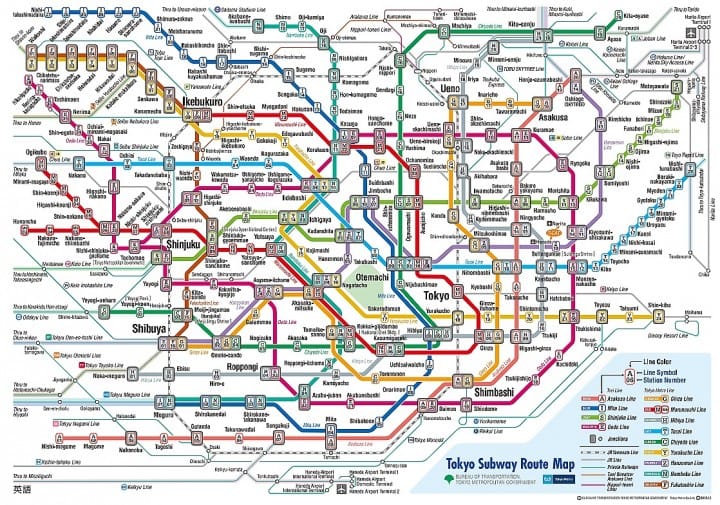So you just got a new job. Congratulations! The bad news is that you now go to work. I know, I’m not a fan either; really wish someone warned me that this would happen. Worse, there’s going to be a first time you go to work, and people are going to expect a lot of things from this.
You would think that now that you have the job, you don’t have to worry about impressions, but apparently that’s not how it works. So, here’s a short crash course on what’s expected.
Let’s open with the good news. This is a bit of a general rule, but being foreign (especially if you’re European, American, or perceived as such) gives you a bit of a pass on social rules to an extent. Which is to say, speaking from lifelong experiences, people really expect you to get some things wrong and won’t care as much when you make a misstep. Try your best all the same, of course, but it’s a nice safety net at times. Personally, I lean into it more often than not, if only because I’m uncomfortable with the idea of office culture calling for (even perfunctory) apologies every five seconds and would rather everyone could relax around me; mixed results, but you’ve got to try.
The advice below mostly assumes an office job. If you’re, say, in catering or retail, then you will probably have less of this (I will try to note what might still apply, but it’s largely guesswork), but on the other hand you have to deal with being in retail or catering work. Sorry.
One last point: The IT industry in general, throughout Japan, is starting to relax its work culture in a lot of ways. This is inconsistent enough that I wouldn’t dream of giving any specifics for people to count on, but it might make for a nice surprise.
Now for the actual advice.
Access is probably the first thing to prepare for. Check your bus/train routes, unless you’re going by car, and get a fairly conservative estimate of when you need to leave to get there on time. You can revise it later if needed. If you happen to work from home at the moment, you can skip this, but being prepared doesn’t hurt. For some places, this will be quite simple. If you live in Tokyo…

…Then obviously I wish you a quick recovery, but otherwise, this is what you’re dealing with.
If you’re applying for work at a Japanese office, I’m assuming your Japanese is adequate and the language barrier won’t be the end of the world. That said, familiarise yourself with how to handle PCs in Japanese (this includes getting the hang of Japanese IME and all its quirks), as well as — I’m assuming you have this figured out already, but just in case — writing your name in Japanese (with an exception for Chinese names, but you might still want a pronunciation guide for that or something). Katakana will do fine; you’re always going to have people asking for the kanji to your name when you’re (for example) trying to reserve something or other, but that happens less these days.
All of this apart from the computer bit applies for all work.
Done?
Now you can start on the next round of preparation. Carrying on the bit about names, you will probably want something to write down all the names you hear, since you’re going to have a lot to remember in fairly short order. Apart from that, you will have to make sure you look right for the job; unfortunately, ‘right’ is a fairly narrow definition, even moreso than office jobs in most of the world.
You’re going to need a suit for most of this. In the case of women — and I really am sorry that this is still the case — heels are usually expected as well. Doesn’t hurt to ask, though. Faces are generally expected to be clean-shaven, and (this one goes for most of Japan, really), tattoos, if present, should be hidden since organised crime is still the #1 association for this by far. The last two would be picked up at the interview stage if anyone sees, so if it didn’t come up then, you’re probably clear, and in any event you can ask once you have the job, but some people might give you odd looks at work anyway, unfortunately. Luckily, little of this applies (okay, the last two points still will) for non-office work.
In between all the other things, let’s get a word in about general communication in the workplace. You have probably heard of the whole senpai-kohai thing, and no, it seems like nobody gets it out of their system during school. The gist of it is that you will be expected to look after people who join after you, while looking up to people who have seniority over you. Thankfully in most places this comes down to some room for asking advice, and using the above two titles as an even more formal step out from using people’s surnames.
Apart from that, much is made both in and outside of ‘honne’ and ‘tatemae’. Respectively, what you actually mean, and what you say. It’s widely accepted that in order to not rock the boat too much, you will be careful with what you say, and if there’s a conflict between what you actually think and what the most agreeable thing to say at any given time, you choose the latter. While it’s true that Japan takes this further than most places and it can be kind of hard to tell what people actually means (a classic is being told something is ‘difficult’ when it means ‘can’t be done, stop asking’), it’s also true that this is… already pretty much the culture of workplace communication across most of the world to some degree. In short, keep an eye out and adjust, but if you’ve heard this discussed at length before, don’t let it scare you too much.It helps that, once again, foreigners are expected to be somewhat more forthright anyway; you are not being held to the same standards.
Lastly, your introduction. As is always my advice, if you need to read something like this, then you don’t want to freestyle it or try anything clever: Better to be boring but safe. Have a routine and repeat it as many times as needed. You’re going to want your name ([Your name] と申します/to moushi-masu), where you come from ([your country name] 出身です/shusshin desu), what department you’re working for or what you do in general (this one’s variable enough that you will have to figure it out, sorry), and a final few words. The last part can be これから頑張ります。よろしくお願いします。 (Korekara Ganbarimasu. Yoroshiku onegaishimasu), or a couple variations I won’t cover here; that’s dressed up in a lot of formality and extras, but the gist of it is promising to work hard.
That should have you more or less covered for your first day. Good luck, and remember, it gets easier from here!








